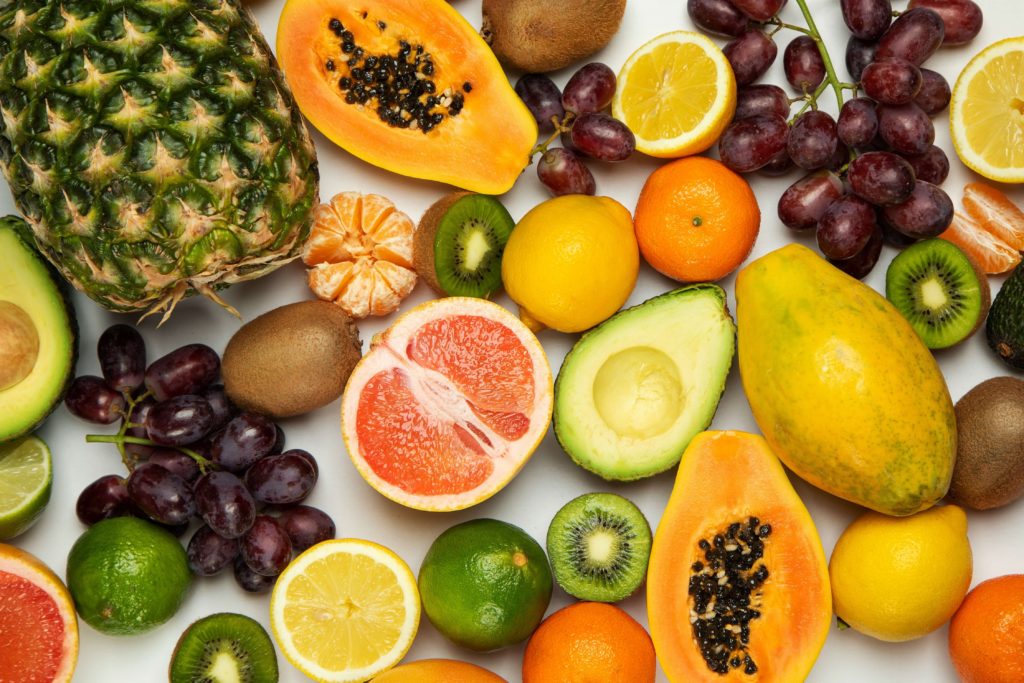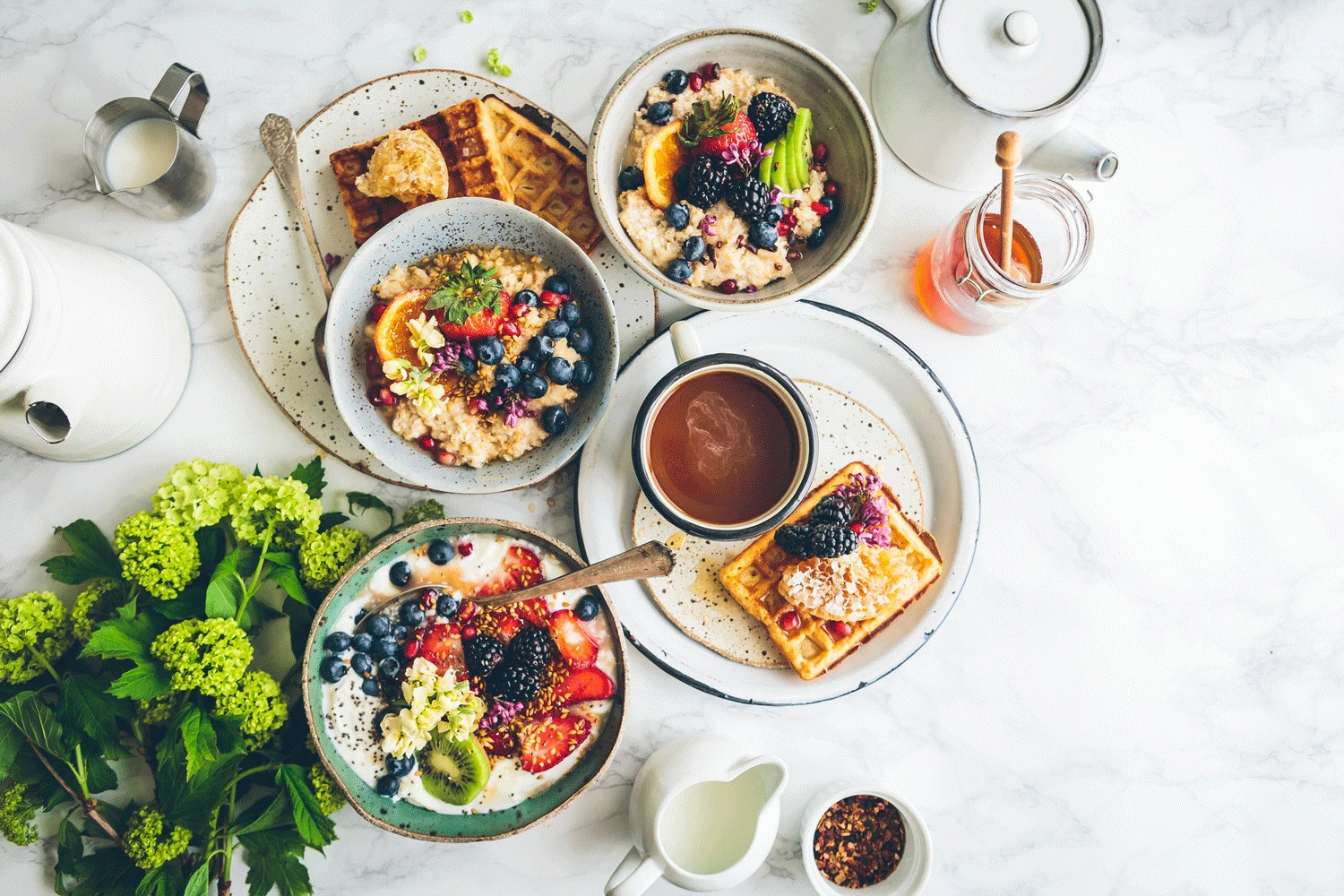These days, we spend far more time at home than ever before. We have limited options for relieving stress, and opportunities for refreshing outings are diminishing. With our moods becoming more difficult to control, the indispensable act of “healthy eating” becomes more important in our daily lives. While eating is a basic activity that provides our bodies with the nutrients it needs, it also has great potential as a means of lifting our moods. Science shows that subtle tweaks to our daily diets affect our minds and body. Here’s why you should choose healthy food options for the longterm health of your mind and soul.

Contents
Nutrition for the Soul
The food we eat provides us with the nutrients we need for our daily activities. But did you know that our heart needs these nutritions as much as our bodies? There are a number of nutrients that are very helpful for the prevention and treatment of mental disorders. Various studies have proven that diet has a strong impact on physical health as well as our mental health.
The Hidden Benefits of a Traditional Diet
In Japan, a traditional meal is typically governed by the “one soup and three side dishes” rule. This means that the meal would consist of one staple food (usually rice), one soup dish (usually miso-soup), and three other small portioned side dishes that may include grilled fish, pickled vegetables, tofu, eggs, or fermented beans (known in Japanese as natto). People who are not familiar with the culture may think that this is an awful lot of separate small dishes for one meal, but the “one soup and three side dishes” rule allows the Japanese to maintain a delicious and well-balanced diet.
Another traditionally healthy food option is the Mediterranian diet from Italy, Spain, and Greece. It is characterized by recipes that are rich in beans and tomatoes. Experiments were done to see how additional mixed nuts and olive oil in these Mediterranean diets influence the body and mind. Researchers conducted this experiment across various regions of Europe. Type II diabetics that added mixed nuts to the traditional diet had a 41% lower risk of developing depression. Individuals who have depression tend to experience mild inflammation and a disturbance of metabolism. Vegetables, legumes, fish, and red wine, which are all abundant in the Mediterranean diet, serves as one form of protection through their antioxidant properties.
Berries Help Prevent Depression

Berries, a food option served in Norwegian and Finnish cuisine, offer healthy benefits despite being such small fruits. Berries such as raspberries, blueberries, and lingonberries are packed with polyphenols, which are rich in antioxidants. These antioxidants firmly lower inflammatory markers that increase when depressed. These sweet and pleasantly sour fruits not only taste great but also support a healthy mind!
If there is room for improvement in your current diet, adopting a few of the above-mentioned diets can assist your mental well-being.
The Effects of Chewing
As mentioned earlier in the discussion of nutrients, the state of our body is deeply connected to the health of our minds. The act of “chewing” that accompanies eating also has a very positive effect. A lot of research has been done on the relationship between chewing and brain hormone secretion. When a person feels psychological stress, the brain produces an excess of dopamine, which causes anxiety, fear, and other unpleasant symptoms. Chewing thoroughly during a meal dramatically increases blood flow to parts of the brain, releasing a hormone called CCK-8. This hormone reduces the effects of dopamine and reduces the feelings of fear and restlessness. This hormone also has a memory-enhancing effect.
If you want to reap the mental benefits of chewing without increasing your calorie intake, gum is the way to go. It’s gentle on your teeth and can help you fight drowsiness. It’s a great item to carry when you feel anxious or sleepy during the day.

Happy Eating with Healthy Food Options !
Eating is an essential part of our lives, and cooking has been studied since ancient times to make food more enjoyable. This article has talked about the benefits of food from a scientific perspective, but at the end of the day, there is nothing greater than the pleasure of eating delicious foods. Cooking is a well-established hobby that can be practiced every day. We can really get into the details of quality ingredients to the seasoning preferred or figuring the best methods to prepare a dish. With fewer means of entertainment during this pandemic, cooking is a great hobby choice to begin.
This article mentioned how diet can be beneficial to our minds in various ways. We can all aim for a healthier diet to make our lives a little more colorful while we keep indoors.
→ Looking to improve your mental health? Try the SELF MIND app FREE for 1 week!
If you’re looking for more tips on how to care for your mental health, check out some of our past blog posts!
Reference:
Funakoshi, M. (1996) Mastication and Mental Health. Journal of Japanese Society for Mastication Science and Health Promotion, 6(1), 35-38. doi: 10.14858/soshaku1991.6.35
Matsuoka, Y., & Hamazaki, K. (2016) Considering Mental Health from the Viewpoint of Diet: The Role and Possibilities of Nutritional Psychiatry. The Japanese Society of Psychiatry and Neurology, 118(12), 880-894.
Yasuhiro, N., Kishio, S., & Funakoshi, M. (1993). Effect of gum chewing on arousal in a self-reported psychologicall test. Journal of Japanese Society for Mastication Science and Health Promotion, 3(1), 23-26. doi: 10.14858/soshaku1991.3.23



